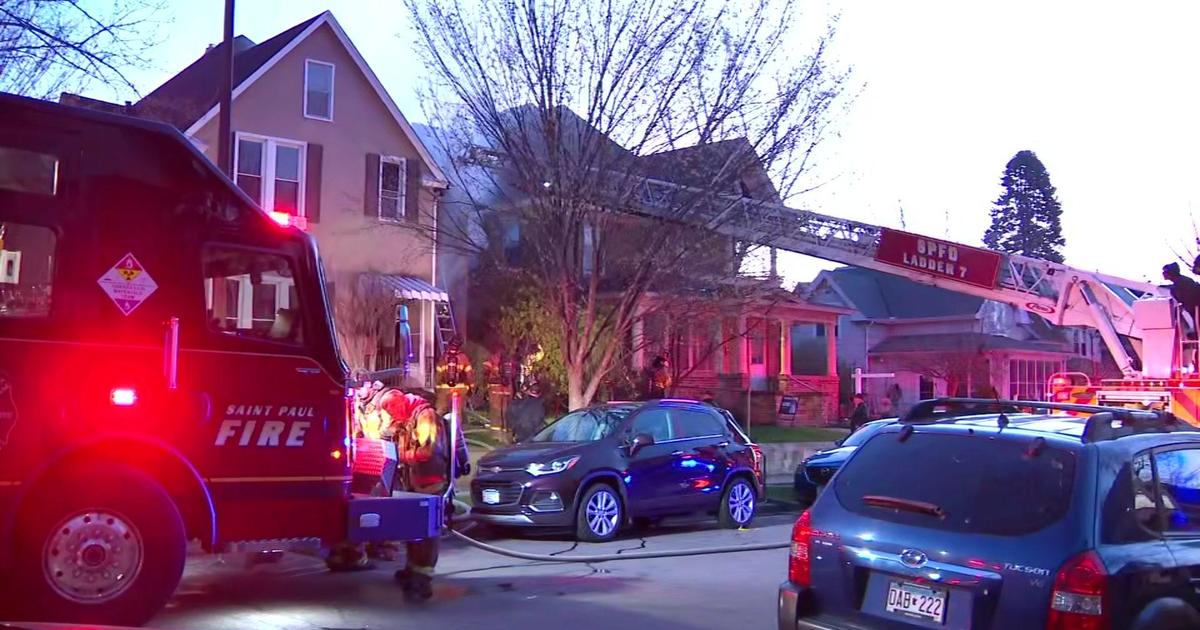Midwest Propane Prices Rise As Cold Snap Holds On
DES MOINES, Iowa (AP) — Several states in the upper Midwest are dealing with significantly higher prices for propane because of a supply problem caused by a late harvest, persistent very cold temperatures and the temporary shutdown of a major supply pipeline.
The problem began in October and November when farmers across the Midwest took to the fields to harvest the late developing corn crop before the cold weather set in. Much of the crop was still wet and needed to be run through propane powered dryers to avoid spoilage, creating a surge in demand for the fuel.
And as colder than usual temperatures arrived early in the Upper Midwest, demand for propane increased. The liquefied petroleum gas is used to heat homes in rural Midwestern areas where there are no natural gas lines. About 15 percent of Iowa households rely on propane for warmth.
"We came out of a crop drying season that really took a toll on the amount of volumes available in the industry," said Drew Combs, vice president of propane for Minnesota-based CHS Inc., one of the nation's largest wholesalers. "Now we're looking at a situation where we have a very large demand because of the extremely cold weather ... and it is looking to last into January."
The supply problem has driven prices 14 percent higher since mid-November in Iowa, where customers are paying $1.88 a gallon — 34 percent higher than a year ago when the fuel sold for $1.40 a gallon. In Illinois the price of propane has climbed 15 percent in the last month. In Wisconsin and Minnesota it's up 13 percent and in Nebraska 12 percent.
To compound the issue, a major pipeline was shut down from Thanksgiving to Dec. 18, further reducing the availability of propane in the Upper Midwest.
The 1,900-mile Cochin pipeline carries propane southeastward from Canada, through North Dakota and Minnesota, across northeast Iowa and into eastern Illinois. Its owners, Kinder Morgan Energy Partners, shut the pipeline down to install new pumps that would reverse the pipeline's flow early next year. Instead of bringing products such as propane from Canada, the company plans to move a petroleum product called light condensate from Illinois to Alberta, Canada, where the product is in high demand and more profitable. It is used to dilute bitumen — thick oil taken from Canadian oil sands — so it can be transported.
Minnesota, which gets about 40 percent of its propane from the pipeline, was hit hard by its closure, which forced propane suppliers to send trucks to northern Iowa terminals for fuel. Add additional traffic from North Dakota, South Dakota, and Wisconsin to the Iowa terminals and the stress on Iowa's propane supply became a serious issue, said Harold Hommes, an energy analyst for the Iowa Department of Agriculture and Land Stewardship.
"Our neighbors to the north are struggling. They had some of the same repercussions from getting grain dried and then getting ready for heating; they just never got a chance to catch up," Hommes said. "Winter set in then and we were never able to rebuild supplies."
Long lines at terminals are common in Iowa and many states, including Iowa and Minnesota, have approved emergency declarations to suspend rules limiting truck drivers to driving no more than 11 hours in a day and working no more than 14 hours. That's because drivers are spending several hours sitting in a line waiting to load their trucks with propane.
The propane industry is preparing for the long-term loss of 50,000 barrels per day the Cochin pipeline provided. Kinder Morgan plans to shut down propane transport early next year as the pipeline is repurposed.
Combs said CHS is building railroad terminals in Minnesota, North Dakota, and Wisconsin and is significantly increasing rail car leases to transport more propane to areas that will see a loss when the pipeline shuts down.
Farmers and the retailers that sell them propane likely will need to increase storage capacity for propane to ensure they have a 10- to 14- day supply on hand, Combs said.
(© Copyright 2013 The Associated Press. All Rights Reserved. This material may not be published, broadcast, rewritten or redistributed.)



